Ancelotti Enters Real Madrid History Books with Latest Triumph
The Italian continues to establish himself as one of the best coaches in the history of the world.

Italian Carlo Ancelotti became the winningest coach in the history of Real Madrid after winning the Intercontinental Cup on Wednesday against Pachuca in Qatar, reaching 15 trophies with the team, a record that no one had achieved so far.
Carlo Ancelotti: A Legacy of Success at Real Madrid
Carlo Ancelotti is one of the most respected and successful football managers of his generation. His career has spanned across top clubs in Europe, with one of his most significant and defining roles being his time at Real Madrid. The Italian coach's arrival at the Santiago Bernabéu in 2013 marked a new chapter in the club's storied history, and under his leadership, Real Madrid achieved notable success. Ancelotti’s calm demeanor, tactical expertise, and experience at the highest level made him the ideal manager to steer the club toward further glory.
Ancelotti’s First Stint at Real Madrid (2013-2015)
Carlo Ancelotti joined Real Madrid in the summer of 2013, following the departure of José Mourinho. At the time, Madrid was coming off a period of intense pressure, with high expectations and a demanding fanbase. Ancelotti, known for his composed and methodical approach, was entrusted with not only winning trophies but also restoring a sense of harmony within the squad.
In his first season, Ancelotti led Real Madrid to a historic victory in the Copa del Rey and, more importantly, to the long-awaited 10th European Cup, "La Décima." The Champions League triumph, a feat the club had not achieved in over a decade, was one of the defining moments of Ancelotti's tenure. Madrid defeated Atlético Madrid 4-1 after extra time in the final, with a stunning comeback that cemented Ancelotti’s status as a manager capable of handling the pressures of elite competition.
Ancelotti's tactical flexibility was key to this success. He adopted a 4-3-3 formation that showcased the attacking prowess of players like Cristiano Ronaldo, Gareth Bale, and Karim Benzema. However, Ancelotti was not afraid to switch to a more pragmatic 4-4-2 formation when necessary, giving his team the balance between defensive solidity and offensive freedom. This tactical flexibility allowed him to get the best out of the squad and kept Real Madrid competitive on all fronts.
Continued Success and the 2014-15 Season
The following season, 2014-2015, was another solid campaign for Ancelotti and Real Madrid. Though they fell short in La Liga and the Champions League, finishing second in both competitions, Madrid’s attacking firepower remained potent. Cristiano Ronaldo was again one of the best players in the world, and the team continued to dominate domestically. Despite this, the failure to win major trophies that season was seen as a disappointment, and Ancelotti’s future began to come under scrutiny.
In the summer of 2015, Ancelotti was dismissed by the club despite his successful first two years. The decision was somewhat controversial, as the team had performed well but was unable to secure silverware in the 2014-2015 season. The managerial change reflected the high expectations at Real Madrid, where even near success can be viewed as insufficient.
Ancelotti’s Return to Real Madrid (2021-Present)
In the summer of 2021, Ancelotti made a surprising return to the Santiago Bernabéu, replacing Zinedine Zidane, who had left the club after another successful stint. His second tenure at Real Madrid proved even more fruitful, with Ancelotti once again leading the club to significant success. In his first season back, Real Madrid won both La Liga and the UEFA Champions League, with Ancelotti's tactical nous playing a crucial role in the team’s triumphs.
In the 2021-2022 Champions League campaign, Real Madrid demonstrated resilience and quality under Ancelotti’s guidance. The team staged memorable comebacks against Paris Saint-Germain, Chelsea, and Manchester City, ultimately defeating Liverpool 1-0 in the final to claim their 14th European title. Ancelotti became the first manager in history to win the Champions League four times, having previously lifted the prestigious trophy with AC Milan and Real Madrid in his earlier managerial stints.
Ancelotti's ability to adapt to modern football trends, while maintaining his classical approach to management, has been key to his success. His leadership has not only been about tactics but also about managing egos in a squad filled with world-class players. He’s managed the complex dynamics between veteran players like Luka Modrić and Karim Benzema, as well as younger stars like Vinícius Júnior and Rodrygo, making sure that everyone felt included and motivated.
Legacy and Influence
Ancelotti’s time at Real Madrid has solidified his legacy as one of the greatest football managers of all time. His achievements with the club include two Champions League titles (2014 and 2022), a Copa del Rey (2014), a La Liga title (2022), and numerous other accolades. His success transcends just trophies, however; it is also about the way he has approached management—balancing player relationships, adjusting to modern football, and staying calm under pressure.
Beyond the trophies, Ancelotti has been a stabilizing force for Real Madrid during periods of transition. His ability to manage high-pressure situations, guide legendary players, and maintain a calm, composed demeanor under intense scrutiny has been invaluable. In a club as storied and demanding as Real Madrid, Carlo Ancelotti has proven time and again that his managerial brilliance is timeless, making him one of the most admired figures in the history of the sport.
More news

End of an era? What Atlético Madrid’s president said about Diego Simeone’s future that surprises everyone
02/04/2025

(VIDEO) Ferran Torres’ Stunning Goal Puts Barcelona 1-0 Ahead Against Atlético Madrid in Copa del Rey
02/04/2025

Where to watch Vancouver Whitecaps vs. Pumas UNAM: Opening match of the 2025 CONCACAF Champions' Cup quarterfinals
02/04/2025

The most controversial moments | Atlético Madrid 0-1 Barcelona: Semifinals of the Copa del Rey Full-Time
02/04/2025

LAFC and Inter Miami ready for CONCACAF Champions Cup quarterfinal battle: where to watch
02/04/2025
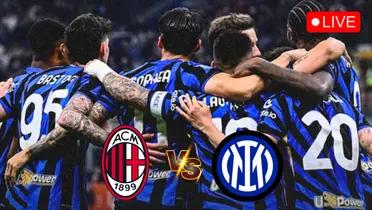
The most controversial moments | AC Milan 1-1 Internazionale: Semifinals of the Italian Cup Today Full-Time
02/04/2025
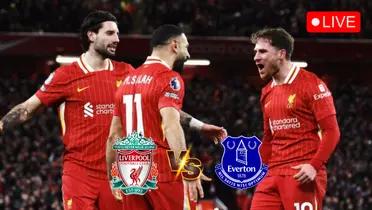
The most controversial moments | Liverpool 1-0 Everton: Matchday 30 of the Premier League Full-Time
02/04/2025

The most controversial moments | Manchester City 2-0 Leicester City: Matchday 30 of the Premier League Full-Time
02/04/2025

Goodbye to Julian Alvarez's dream: the star striker Liverpool wants to sign
02/04/2025
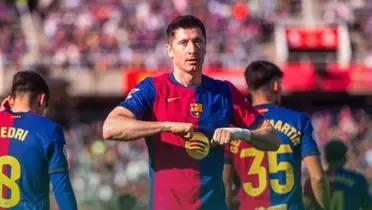
Where to watch Atlético Madrid vs. Barcelona: Copa del Rey Semifinal Second Leg on April 2, 2025
02/04/2025
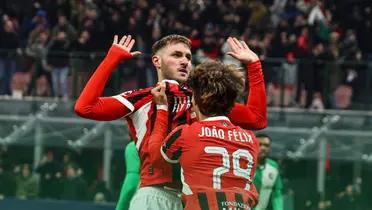
AC Milan vs Inter Milan: Coppa Italia 2024-25 Semifinal Preview and Live Viewing Options
02/04/2025
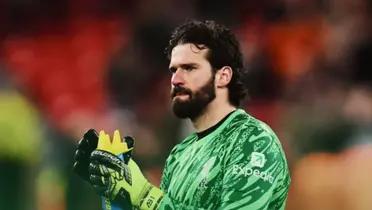
Where to watch Liverpool vs Everton: Premier League Matchday 30 preview for April 2, 2025
02/04/2025

Manchester City vs Leicester City: Premier League 2024-25 Matchday 30 Preview and Viewing Guide
02/04/2025
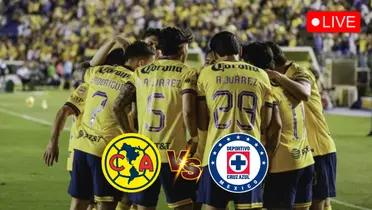
The most controversial moments of the match | America 0-0 Cruz Azul: CONCACAF Champions Cup Quarterfinals Full-Time
02/04/2025

It's not a European club: The team that dreams of having Cristiano Ronaldo for the Club World Cup
01/04/2025

Is Ancelotti no longer seen in Madrid? doubts about his future grow every day
01/04/2025

Rubén Amorim's firm response about Bruno Fernandes and Real Madrid
01/04/2025

The most controversial moments | Real Madrid 4-4 Real Sociedad: Semifinals of the Copa del Rey Full-Time
01/04/2025



